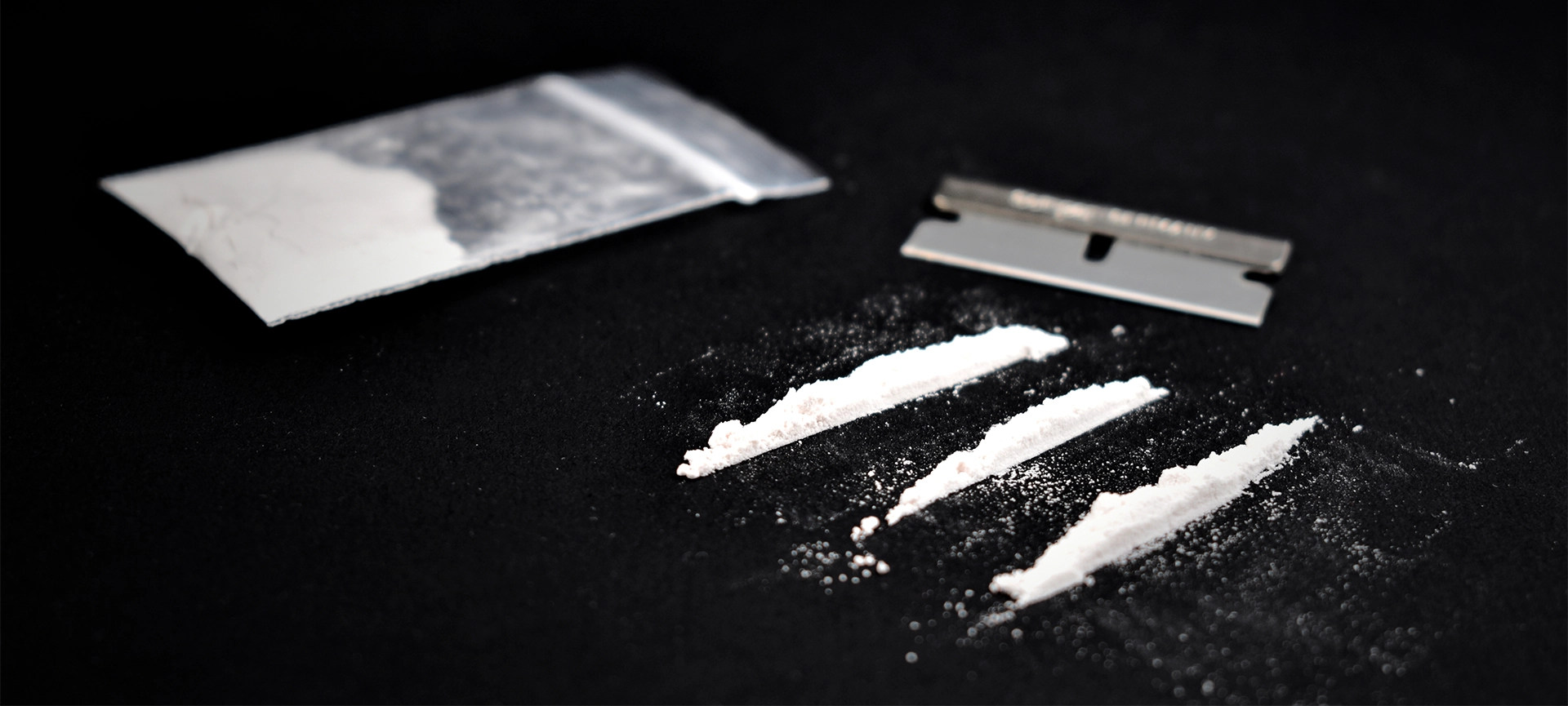What Are Cocaine Side Effects?
Cocaine is a potent stimulant drug notorious for its ability to produce intense feelings of euphoria and energy. Despite the well-documented dangers associated with its use, cocaine remains one of the most widely used illicit drugs worldwide. Its popularity stems from its ability to induce a powerful high, but this initial rush of pleasure is often followed by a range of adverse side effects that can significantly impact physical and mental health.
What does cocaine do to your body?
While many people may be aware of the immediate effects of cocaine, it’s crucial to understand that the repercussions of its use extend far beyond the initial high. From short-term consequences like elevated heart rate and anxiety to long-term risks of addiction, organ damage, and mental health disorders, cocaine can have a devastating impact on the lives of those who use it.
Understanding these side effects is the first step towards making informed decisions about drug use and seeking help if needed.
Short-Term Side Effects of Cocaine
The immediate effects of cocaine use can be intense and varied, affecting both the body and mind.
Physical Effects:
- Increased Blood Pressure and Heart Rate: Cocaine’s stimulating effects on the cardiovascular system can lead to elevated heart rate and increased blood pressure. This can lead to palpitations, chest pain, and in severe cases, heart attack or stroke.
- Elevated Body Temperature: Cocaine interferes with the body’s ability to regulate temperature, leading to overheating and potentially dangerous hyperthermia.
- Dilated Pupils: Cocaine causes the pupils to widen, a visible sign of stimulant use.
- Decreased Appetite: The drug suppresses appetite, leading to decreased food intake and potential weight loss.
- Increased Energy and Alertness: Cocaine’s stimulant properties produce a temporary surge in energy, alertness, and focus.
- Restlessness, Tremors: Users may experience uncontrollable movements, tremors, and muscle twitches.
Mental/Emotional Effects:
- Euphoria and Heightened Confidence: Cocaine triggers a flood of dopamine in the brain, creating an intense feeling of pleasure, euphoria, and heightened self-confidence.
- Anxiety and Paranoia: As the initial high subsides, users may experience anxiety, paranoia, and agitation.
- Irritability and Aggression: Cocaine can also lead to increased irritability, agitation, and even aggressive behavior.
- Difficulty Sleeping: The stimulant effects of cocaine can disrupt sleep patterns, causing insomnia and difficulty falling asleep.
The intensity and duration of these short-term effects can vary depending on the amount of cocaine used, the method of administration (snorting, smoking, injecting), and individual differences in tolerance and metabolism. However, even a single use of cocaine can have significant and potentially dangerous consequences for both physical and mental health.
Related Article: Dual Diagnosis: Treating Cocaine Addiction and Mental Health in Vancouver
Long-Term Side Effects of Cocaine
While the immediate effects of cocaine can be alarming, the long-term consequences of repeated use are even more devastating.
Physical Effects
- Cardiovascular Damage: Chronic cocaine use significantly increases the risk of heart attack, stroke, and other cardiovascular problems. The drug’s impact on blood pressure, heart rate, and blood vessels can lead to the formation of blood clots, inflammation of the heart muscle, and abnormal heart rhythms.
- Respiratory Problems: Smoking crack cocaine can irritate and damage lung tissue, leading to bronchitis, asthma, and other respiratory problems. In severe cases, it can even cause respiratory failure.
- Nasal Damage: Snorting cocaine can erode the delicate tissues in the nose, leading to chronic nosebleeds, difficulty smelling, and even holes in the nasal septum.
- Infectious Diseases: Injecting cocaine carries a high risk of transmitting infectious diseases like HIV and hepatitis C due to shared needles and unsafe injection practices.
- Malnutrition and Weight Loss: Cocaine suppresses appetite and interferes with nutrient absorption, leading to malnutrition and significant weight loss over time.
Mental/Emotional Effects
- Addiction and Dependence: The development of addiction is perhaps the most devastating long-term consequence of cocaine use. This chronic, relapsing brain disease leads to compulsive drug-seeking behaviour despite negative consequences.
- Depression and Anxiety: Cocaine disrupts the brain’s natural reward system, leading to anhedonia (the inability to feel pleasure) and increasing the risk of depression and anxiety disorders.
- Psychosis and Hallucinations: Long-term cocaine use can trigger or worsen psychotic symptoms, including hallucinations (seeing or hearing things that are not there) and delusions (false beliefs).
- Cognitive Impairment: Chronic cocaine abuse can damage brain cells and disrupt neural pathways, leading to problems with memory, attention, decision-making, and overall cognitive function.
These long-term effects of cocaine use paint a grim picture of the potential consequences of this powerful drug. The cumulative damage it inflicts on the body and mind can be severe and life-altering.
Related Article: How Long Does Cocaine Stay in Your System?
Cocaine Overdose: A Life-Threatening Risk
Cocaine overdose is a serious and potentially fatal consequence of using the drug, especially in large amounts or in combination with other substances. Recognizing the signs of an overdose and acting quickly can be the difference between life and death.
Signs of a Cocaine Overdose
- Seizures
- Chest pain
- Difficulty breathing or irregular breathing
- Loss of consciousness
- High body temperature
- Agitation, confusion, hallucinations
What to Do in Case of Overdose
If you suspect someone is experiencing a cocaine overdose, it’s crucial to act immediately:
- Call for emergency medical help. Dial 911 or your local emergency number right away. Explain that you suspect a drug overdose and provide the address and any relevant details about the person’s condition.
- Remain by their side until emergency services arrive, carefully monitoring their breathing and pulse. Be ready to administer CPR if required.
- Do not attempt to induce vomiting unless explicitly directed by a medical professional, as this could worsen the situation.
- Be Honest with emergency responders. Provide accurate information about what the person has taken and how much to help medical professionals make informed treatment decisions.
Remember, time is of the essence in a cocaine overdose situation. Seeking immediate medical attention can save a life.
Cocaine Addiction and the Road to Recovery
While cocaine may initially seem like a source of pleasure and energy, its addictive nature can quickly take hold, leading to a downward spiral of negative consequences.
Signs and Symptoms of Cocaine Addiction
- Intense cravings
- Loss of control
- Neglecting responsibilities
- Financial difficulties
- Isolation and secrecy
- Continued use despite negative consequences
Impact of Addiction on Relationships, Work, and Well-being
Cocaine addiction can wreak havoc on every aspect of a person’s life. Relationships with family and friends often become strained or broken due to dishonesty, broken promises, and the addict’s increasingly erratic behaviour.
Work performance suffers as the individual struggles to focus, meet deadlines, and maintain professionalism. The toll on mental and physical health is immense, with addiction often leading to depression, anxiety, paranoia, and a host of physical ailments.
The Importance of Seeking Professional Help
Overcoming cocaine addiction requires professional guidance and support. Attempting to quit on one’s own is rarely successful and can be dangerous due to withdrawal symptoms. A professional addiction treatment centre provides a safe and structured environment for recovery, offering evidence-based therapies and comprehensive support.
Related Article: After Care Following Cocaine Rehabilitation
Getting Help at Inspire Change Wellness
At Inspire Change Wellness, we understand the complexities of cocaine addiction and the unique challenges faced by each individual. Our team of compassionate and experienced addiction specialists is dedicated to providing comprehensive, evidence-based cocaine addiction treatment in a safe and supportive environment.
Don’t Wait – Reach Out Today
If you or someone you love is struggling with cocaine addiction, don’t wait. We can help you break free from the grip of addiction and reclaim your life. Contact Inspire Change Wellness today to learn more about our programs and services.
A Path to Healing and Hope
The dangers of cocaine are real and can lead to serious consequences for your health, relationships, and future. However, with the right support and treatment, recovery is possible.
Don’t let fear or stigma hold you back from seeking the help you need. Take the first step today towards a healthier, happier life free from cocaine addiction.





